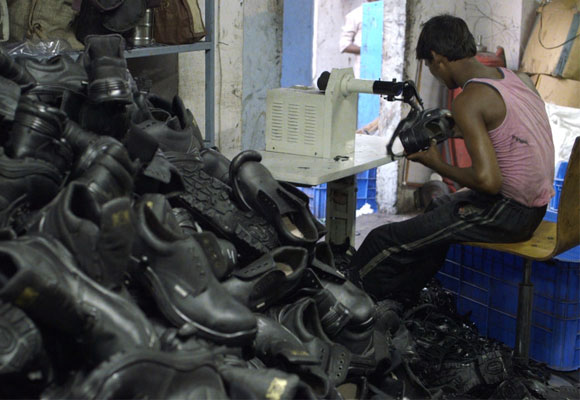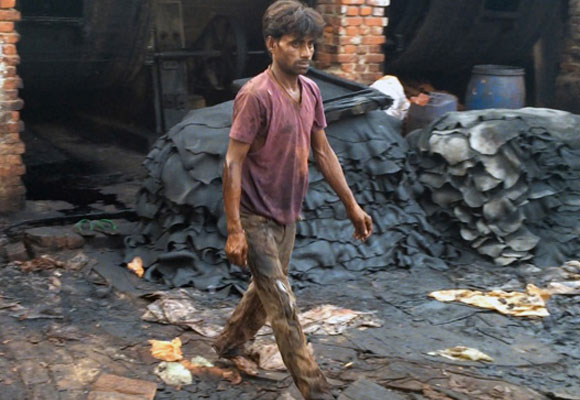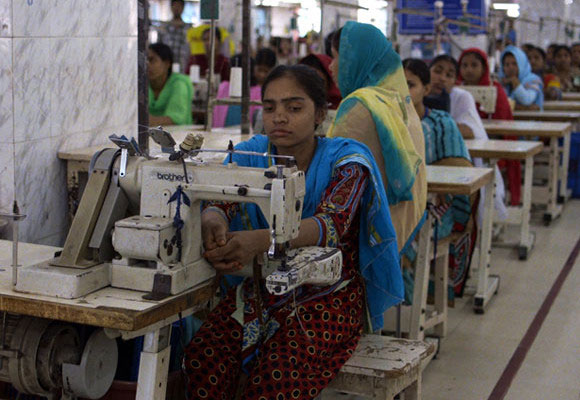The business of fast fashion: The True Cost film
Did you know that your cotton jeans are so full of pesticides that they could make you sick ?

Do you like to shop every week? do you buy cheap throwaway fashion? do you like fast fashion? how much does your t shirt cost? where was it made? how was it made? do you inform yourself ? do you care?
Did you know that the people making your cheap clothes make just $2 a day and to increase their salaries to $5 a day would make a difference of only 25 cents on your fast clothes, which to them is a difference between living with a little dignity or most likely dying? Did you know that your cotton jeans are so full of pesticides that they could make you sick ?
From The Daily Telegraph: In October 2013, having been shocked by the Rana Plaza factory collapse which left 1,134 garment workers dead – mainly women who made clothes for brands he knew and wore – Andrew Morgan launched a Kickstarter fund to raise the finances to make a documentary that would travel the world to find the true cost of the fast fashion industry on the world’s environmental resources as well as its people.903 backers pledged $76,546 and on May 15, the film premiered at Cannes Film Festival.

And from the film’s website: ‘The True Cost’ is a documentary film exploring the impact of the global clothing industry on people and the planet. This is a story about clothing. It’s about the clothes we wear, the people who make them, and the impact the industry is having on our world. The price of clothing has been decreasing for decades, while the human and environmental costs have grown dramatically. The True Cost is a groundbreaking documentary film that pulls back the curtain on the untold story and asks us to consider, who really pays the price for our clothing?
Filmed in countries all over the world, from the brightest runways to the darkest slums, and featuring interviews with the world’s leading influencers including Stella McCartney, Livia Firth and Vandana Shiva, The True Cost is an unprecedented project that invites us on an eye opening journey around the world and into the lives of the many people and places behind our clothes.
Buy or stream The True Cost on Itunes, Amazon etc for 9.99 $ and go on the film’s website for information on the people like you that are making a difference. You can also find screening information for your country on the website. Watch the trailer now:
Read here a great piece by the LA Times, this is the introduction: Go to any shopping mall, and inexpensive clothes are abundant — $4.99 T-shirts, $7.90 skinny jeans, $8.90 sandals. But as we fill our closets, who pays the price? That question is answered in the wide-ranging new film “The True Cost”.
In the wake of the 2013 Rana Plaza factory collapse in Bangladesh, which killed more than 1,100 garment factory workers, Los Angeles-based filmmaker Andrew Morgan set out to make a documentary about the human and environmental cost of shopping at H&M, Forever 21, Topshop, Zara and other stores associated with the $3-trillion fast-fashion industry, in which stores receive trendy new merchandise on a daily basis.

The film, which opens May 29 in theaters, on video on demand and iTunes, was shot in 13 countries, from the slums of Dhaka, Bangladesh, to the cotton fields near Lubbock, Texas. It includes interviews with fashion designers, factory workers and owners, cotton farmers, labor activists, academic experts on consumption, sustainability and more, to shine a light on the “perfectly engineered nightmare” that feeds shoppers’ insatiable appetites for cheap chic.
“The day I read about the [collapse], I looked down and realized I had never thought about where clothes come from,” says Morgan, 28, who lives in Sherman Oaks. “When you grow up looking only at a store window and only thinking about your side of the equation, it leads to a very dangerous set of effects”.
